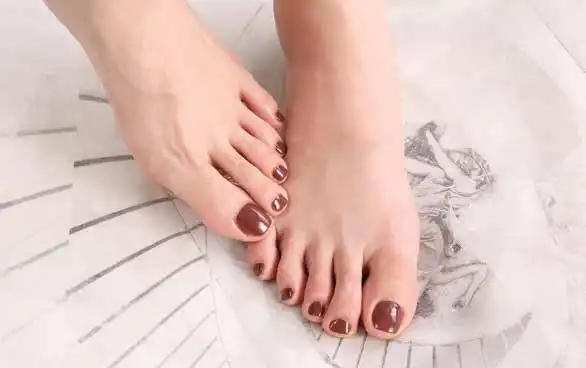
3 minute read
How to look after your feet
from Potton June 2022
by Villager Mag
Our feet are our first point of contact with the world, and yet too often we cram them into illfitting shoes and leave them until last when it comes to self-care. From athlete’s foot to ingrown toenails, there are a variety of issues that can crop up as a result of poor foot care. So, what can you do to – literally – put your best foot forward, and how can you resolve any issues should they arise? Prevention is better than cure, so the best place to start is with your choice of shoe. A good pair of shoes should support and protect your feet, and allow natural movement when walking. Look for breathable fabrics, roomy toe-boxes, cushioned soles and low heels. Although wearing high heels once in a while won’t do much harm, long-term use has been linked to ingrown toenails and even arthritis. Once you’re wearing the right shoes, keeping your feet in good condition should be fairly straightforward. Applying a moisturiser or foot cream daily will help prevent cracking, and using a pumice stone or foot file will tackle any hard skin that often appears around the heels. It’s also important to check your feet regularly for cuts, sores, redness or swelling – especially if you’re diabetic. This is because raised blood sugar levels can often lead to a reduction in blood supply to your feet, which means that cuts and sores may take a while to heal. When it comes to foot care, toenail trimming is key. The trick here is little and often. Experts recommend trimming your nails every six to eight weeks, cutting them straight across using clean, sharp clippers. The best time is when you’re just out of the bath, but be careful not to cut them too short. Ingrown toenails are often the result of over-trimming, and besides being extremely painful, in extreme cases, may need an operation to resolve. Athlete’s foot is another common foot problem, caused by walking barefoot in communal spaces such as gyms, showers or swimming pools. This fungal infection usually starts between the toes, causes significant discomfort, itching and pain, and can even spread beyond the feet if not treated. Over-the-counter fungal creams are the best solution, but it’s also important to keep your feet clean and dry in-between treatments. Some foot ailments can be slightly more bothersome, however. Ledderhose disease is a rare condition that causes connective tissue to build up and create hard lumps on the soles of the feet. The growths aren’t cancerous but they can cause pain, especially when walking. Home remedies include wearing soft shoe inserts, stretching, massages and anti-inflammatory drugs, but doctors might also recommend surgery in more serious cases. Although chiropody becomes more important as we age, taking good care of our feet also gets harder as we lose flexibility. If you’re experiencing any aches, pains or symptoms in your feet, visit your local chiropodist who will be able to help diagnose any issues and advise next steps.

Advertisement
Hello Villager Readers...

Good news! Having maintained thorough and careful safety measures at the Herts MS Therapy Centre, we are being asked to expand our programme of Oxygen Therapy sessions. It’s fantastic to see familiar faces again, and to welcome new people keen to see how Oxygen Therapy may help them. Many people with health challenges find it gives them pain relief, energy boosts and faster healing. To enable us to run the Oxygen Therapy additional sessions needed, our charity needs some extra pairs of hands! Can you help us please? Full training and support are given, plus safety measures are observed at all times. Peter Noble is so impressed with how Oxygen Therapy changed his life that he intends to volunteer at The Herts MS Therapy Centre. 01462 684 214 “Oxygen Therapy has done me the power of good, helping me recover from Long Covid. The people are welcoming and friendly,” says Peter. “I’d like to volunteer there in the future - to give something back.” Oxygen sessions at The Herts MS Therapy Centre are used as a complementary therapy that helps some people. It is safe to try and is natural. For over 30 years the charity has helped thousands of people with MS, Parkinson’s disease, chronic fatigue syndrome, ME, fibromyalgia, sleep apnoea, leg ulcers, cancer and – more recently – Long Covid. Could you spare a couple of hours each week? Please email oxygen@hmstc.net if you’d like to know more. Thank you. We are grateful for your support. Best wishes, Team HMSTC











